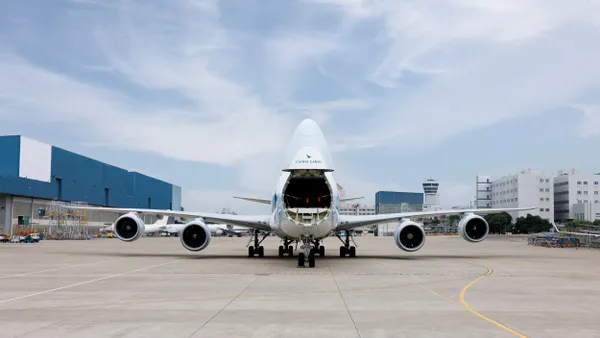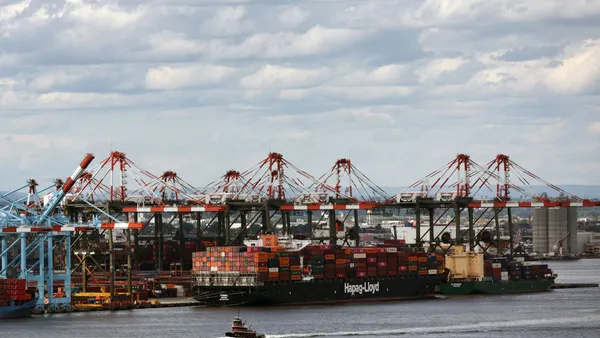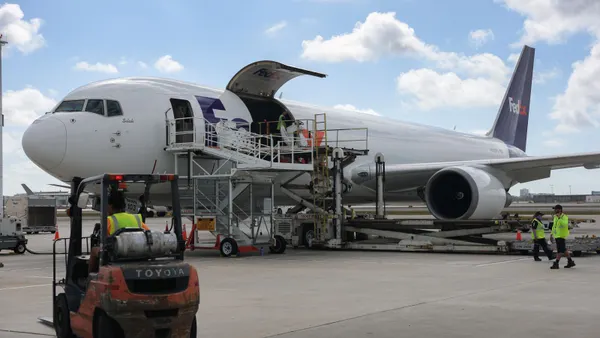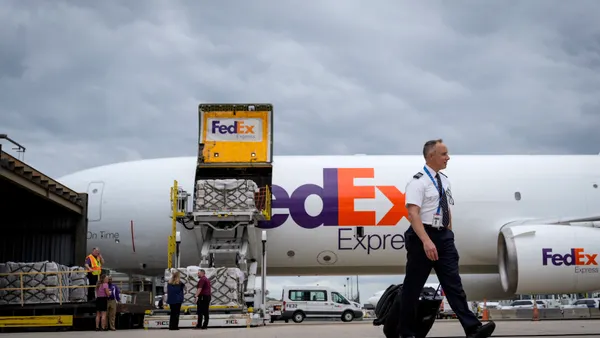Dive Brief:
- The International Air Transport Association last week sounded the alarm for air cargo operators, warning Brexit — "hard" or not — could pose significant risks to air-reliant supply chains in the United Kingdom.
- In a commissioned report, the IATA outlines nine risks to the air transport industry from the separation. Among these is the so-called "slowing" of supply chains that may result from additional customs checks for previously expedited goods, like aircraft parts.
- In a call with media, IATA CEO Alexandre de Juniac said the report found three "urgent" priorities for the UK and the EU to sort out prior to March 2019: ensuring connectivity, safety and security, and efficient border management.
Dive Insight:
"It may seem a short list, but each entails a huge amount of work," de Juniac said in his media remarks.
The report goes into further detail on how the air transport industry may be affected by the UK's decision to exit the European Union.
In one example, the report outlines the industry's reliance on just-in-time supply chains for their maintenance and repair operations. An Airbus A350, for example, has four million parts produced by 1,500 companies in 30 different countries. Lack of clarity over customs procedures could pose "a serious threat."
Separately, the report also found general air transport business routes could be affected by Brexit. "Many routes
are unprofitable when only carrying passengers," the report reads. "Many routes would become commercially
unviable if transporting freight is no longer commercially viable."
The two examples scratch the surface of the wide array of issues the air transport industry needs clarity on before the March 2019 deadline. Even in the best case ("base") scenario of an agreed-upon Brexit, the report found there is little clarity at the moment on how at least four high-impact issues would be addressed.
The UK and the EU are currently in negotiations to determine how, exactly, a Brexit can be carried out. Proposals of a "soft" Brexit are on the table, wherein the UK and the EU agree to a two-year transition period to give institutions more time to work out the details of the separation. As negotiations flounder, however, a "hard" scenario — wherein the UK exits in full as of March 2019 — has begun to appear more likely.
"A transition period of two years would be a challenging time frame to sort it out," de Juniac said. "But if the UK leaves the EU with a 'hard Brexit' in March 2019 then it is hard to see how all this work can be achieved. The inevitable consequence will be chaos."
The IATA is not the only business group sounding the alarm over a hard Brexit. In the past four months, trade groups representing the food industry and ports have issued similar warnings. Businesses, like Aston Martin and drug companies, are looking for ways to minimize the impacts on their supply chains.














